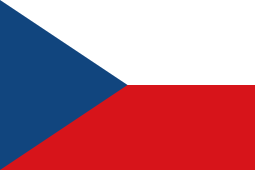
Region: Europe
Disability Definition
According to the Convention on the Rights of Persons with disabilities: “Persons with disabilities include those who have long-term physical, mental, intellectual or sensory impairments which in interaction with various barriers may hinder their full and effective participation in society on an equal basis with others.”
Legislation
The Czech Republic ratified the UN Convention on the Rights of Persons with Disabilities in 2009.
The National Plan for the Promotion of Equal Opportunities for Persons with Disabilities 2021-2025. “The basic purpose of the National Plan is to ensure equal rights and equal opportunities for persons with disabilities through the availability of a dignified and independent life for this group and to create an environment that is minimally restrictive/barrier-ridden.”
Employer Legal Requirements
According to a 2013 article by the European Comission, employers from the Czech Republic are obliged to adapt the workplace to the needs of the disabled employee and to provide job training. All employers with more than 20 employees are required to fill at least 4.5% of their positions with people with disabilities and another 0.5% with severely disabled persons. The Regional Employment Agencies assist people with a disability in finding suitable employment.
Reference: Your social security rights in Czech Republic_en.pdf (europa.eu)
Accessibility Requirements
According to 2021 Human Rights Report: “The country does not have a unified law governing access for disabled persons. Instead, specific pieces of legislation in each area (education, transport, health, construction) contain accessibility provisions linked to technical or EU-approved standards.”
Reference: CZECH REPUBLIC 2021 HUMAN RIGHTS REPORT (state.gov)
Cultural Norms
Attitudes to disability in the Czech Republic have improved over the years, but there is still room for progress. People with disabilities are generally seen as part of society and are not stigmatized as much as in the past. However, some negative attitudes still exist, particularly towards people with intellectual disabilities.
Reference: Czech Republic – Disability – Expat Focus
Business Practices/Examples
Additional content coming soon.
Insights
In the Czech Republic, the statistical data on the number of people with disabilities differ in social, health or cultural contexts. Overall, based on estimates there are 1.3 million people with disabilities based on a 10 percent estimate where 10 percent is the average projection of other European countries.
Reference: Czech Republic – Disability Insider
Supplier Diversity
Although employers operating in the Czech Republic have supplier diversity programs, we do not have any partners with international supplier certifications programs in the Czech Republic at this time. Please let us know if you have any updates we should post.
Certification is in place for women-owned business enterprises (WeConnect).
Talent Sourcing Resources
Rytmus is an NGO based in the Czech Republic that promotes the active societal participation of people with disabilities. Their initiatives include employment programs.
Additional Resources
The Czech National Disability Council is an advocacy group with the following goals:
- to put forward proposals to both national and local government concerning legislative or other relevant measures for the advancement of persons with disabilities;
- to assess draft measures concerning the living conditions of persons with disabilities, drawn up and submitted to the CNDC by other bodies or institutions;
- to participate, in compliance with the relevant legislation, in the development and execution of long-term policies related to the equalization of opportunities for persons with disabilities at both the national and the regional level.
The Jedlička Institute educates children with disabilities with the eventual goal of employment. They provide elementary and middle school education, extracurricular activities, and rehabilitation services.
